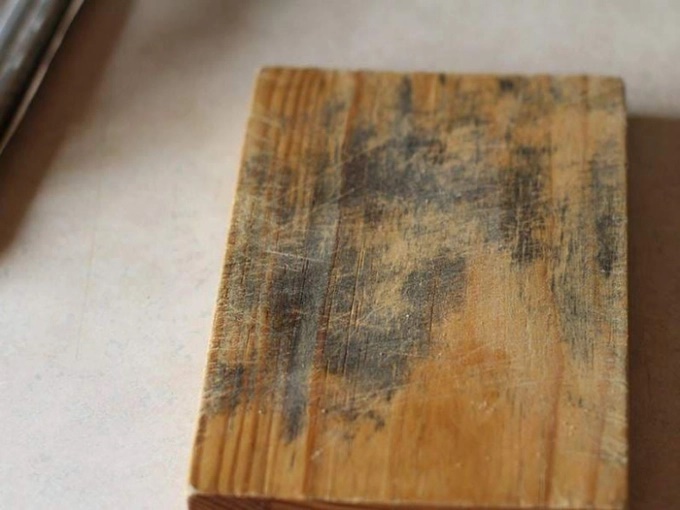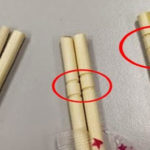We all know that saving is a good virtue, but saving at the wrong time and in the wrong places is not wise. Whether you’re rich or poor, there are 5 things that you shouldn’t be too frugal with. It’s best to throw them away when they’re old, instead of waiting until diseases overwhelm you and it’s too late to regret:
1. Expired cosmetics
In reality, cosmetics have expiration dates, especially after being opened. However, many people don’t pay much attention to this or only care about the expiration dates when the products are still sealed, and continue to use them until they run out.

Meanwhile, many products such as lipsticks, creams, eyeshadows… usually only have a shelf life of 6 months to 12 months after you’ve opened them. Some people buy large containers thinking they are saving money, even when they know they have expired.
When cosmetics and skincare products expire, the chemicals in them can undergo transformation and produce harmful substances that may irritate or even cause serious damage to the skin. They can also promote mold growth and pose other health risks. Therefore, when purchasing, be sure to read the specifications carefully, regularly check the expiration dates during use, and dispose of them according to the manufacturer’s recommendation.
2. Too old plastic containers
Over time, plastic containers can release toxic chemicals, such as bisphenol A (BPA), which can leach into the food and drinks stored in them. Prolonged exposure to these chemicals can have negative effects on human health. This is especially true for low-quality, unbranded plastic containers.
Additionally, even the good quality plastic containers should not be used for too many years, especially if you frequently use them for hot food or in the microwave. Apart from absorbing toxins into the food, the containers themselves can become warped and damaged. As a result, their ability to preserve food deteriorates, creating favorable conditions for bacterial invasion.
Moreover, plastic containers used for a long time may turn yellow and acquire stains from food, grease, and mold that cannot be completely removed, making it difficult to see them with the naked eye. It is best to replace plastic containers regularly, as soon as you notice any abnormalities compared to when you bought them, such as strange odors, or at most 1-2 years of use even if they are not damaged.
3. Pillows after prolonged use
The comfort of a pillow can affect the quality of sleep and our overall health. Never think that washing your pillow regularly means it will last forever.
Firstly, pillows used for too many years can change in color and shape. This can affect sleep, the position of the body, breathing, and even the skin of the user.
Secondly, pillows can harbor a lot of bacteria from sweat, dead skin, hair, and everyday dirt. Studies have shown that pillowcases and bed sheets that are not washed for a week can generate up to 3 million bacteria, 17,000 times more than a toilet seat. This number can increase to 10 million if you don’t wash them for 4 weeks. Plus, no matter how diligently you wash them, you can’t guarantee that the foam or cotton inside will be thoroughly cleaned after a long period of use.

According to health and sleep experts, pillows made of different materials have different replacement times. If your pillow is filled with synthetic fiber, you should replace it every 6 months. Memory foam pillows or any type of pillows that provide body support should be replaced after about 18-36 months. Latex pillows have a high lifespan, about 3 to 4 years. Polyester fiber pillows have a short lifespan and should be replaced every six months. It is best to replace cotton and silk pillows after 1 to 3 years of use. As for pillowcases, they should be replaced every 6 to 12 months and washed at least 2 to 3 times a week.
4. Bath towels and underwear
Saving bath towels and underwear is a terrifying type of saving that trades off your health. Towels usually have a shelf life of 2-6 months, so you should avoid using them past their expiration date because their quality will no longer be good, and they can harbor harmful bacteria that can be bad for your skin. Moreover, you should wash towels every 2-3 days to ensure hygiene for your body.
Similarly, underwear that comes into contact with the breasts and genitals on a daily basis can accumulate various bacteria. After a long time, the underwear can change color to yellow, making it more prone to hosting parasites. During the drying process, dust mites in the air can also cling to the underwear. Especially for women, underwear can become more damaged, discolored, and yellowed due to acidic sweat or breast milk properties.
According to health experts, underwear must be washed daily and can be disinfected with boiling water if necessary. Underwear usually has the shortest lifespan, the shortest being three months and the longest six months before replacement. In addition, if the underwear becomes deformed, rigid, has holes, or becomes stained and cannot be thoroughly cleaned, you should dispose of them and replace them immediately. Apart from discomfort, they can cause various reproductive and gynecological diseases, and even cancer and affect the appearance of breasts.
5. Using wooden chopping boards and chopsticks for too long
Chopping boards and chopsticks are indispensable items in every kitchen. However, they also pose many risks of disease, including cancer. This is especially true for wooden chopping boards and chopsticks that have been used for a long time or have not been cleaned and properly stored.
During the use of these items, they will become rough, cracked, easy to absorb water and food residues, and difficult to clean. Over time, they will likely become damp, susceptible to mold, and produce aflatoxin toxins that can cause cancer and other serious diseases.
According to research by the US Food and Drug Administration (FDA), Aflatoxin mold is very heat resistant. This white crystalline chemical compound is not destroyed by normal cooking, making it difficult to handle. Therefore, even if you use wooden chopping boards and chopsticks to eat hot food or cook, or wash them with hot water, they cannot completely eliminate the toxins.

It is best to replace chopsticks every 3-6 months. When washing chopsticks, use a specialized dishwashing brush to clean each pair instead of placing the chopsticks in the palm of your hand and rolling them back and forth. Because that is not enough to clean them, especially when you wash many pairs at once. You should also clean chopping boards thoroughly, choose high-quality ones, and replace them every 6 months to 1 year. Wash wooden chopping boards and chopsticks with warm water, store them in a dry place, regularly disinfect them with antifungal agents, and always wash them before each use.
Source: Phụ Nữ Mới
Exploring the Pros and Cons of Sleeping in an Air-Conditioned Room
Is sleeping with an air conditioner a good idea? As concerns over the adverse effects of air conditioning on our health increase, it’s important to understand the risks and rewards of using air conditioning while sleeping. Let’s examine the benefits and drawbacks of sleeping with an air conditioner, and the protective measures one should take.





































